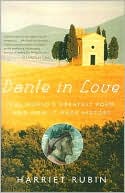Category Books
- Fiction Books & Literature
- Graphic Novels
- Horror
- Mystery & Crime
- Poetry
- Romance Books
- Science Fiction & Fantasy
- Thrillers
- Westerns
- Ages 0-2
- Ages 3-5
- Ages 6-8
- Ages 9-12
- Teens
- Children's Books
- African Americans
- Antiques & Collectibles
- Art, Architecture & Photography
- Bibles & Bible Studies
- Biography
- Business Books
- Christianity
- Computer Books & Technology Books
- Cookbooks, Food & Wine
- Crafts & Hobbies Books
- Education & Teaching
- Engineering
- Entertainment
- Foreign Languages
- Game Books
- Gay & Lesbian
- Health Books, Diet & Fitness Books
- History
- Home & Garden
- Humor Books
- Judaism & Judaica
- Law
- Medical Books
- New Age & Spirituality
- Nonfiction
- Parenting & Family
- Pets
- Philosophy
- Political Books & Current Events Books
- Psychology & Psychotherapy
- Reference
- Religion Books
- Science & Nature
- Self Improvement
- Sex & Relationships
- Social Sciences
- Sports & Adventure
- Study Guides & Test Prep
- Travel
- True Crime
- Weddings
- Women's Studies
Dante in Love: The World's Greatest Poem and How It Made History » (Reprint)

Authors: Harriet Rubin
ISBN-13: 9780743262989, ISBN-10: 0743262980
Format: Paperback
Publisher: Simon & Schuster Adult Publishing Group
Date Published: March 2005
Edition: Reprint
Author Biography: Harriet Rubin
Harriet Rubin was the founder of Doubleday Currency and has published dozens of bestsellers. She is the author of The Princessa: Machiavelli for Women, which has been translated into twenty-three languages. She is on USA TODAY's editorial board and is a consultant to media companies. She currently lives in Manhattan and Portland, Oregon.
Book Synopsis
In the vein of Brunelleschi's Dome, Galileo's Daughter, and Wittgenstein's Poker, Dante in Love is a geographic and spiritual re-creation of the poet's travels and the burst of creativity that produced the greatest poem ever written.
Dante in Love is the story of the most famous journey in literature. Rubin follows Dante's path as the poet, exiled from Florence, walked the old Jubilee routes that linked monasteries and all roads to Rome and Tuscany -- a path followed by generations of seekers from T. S. Eliot, Sigmund Freud, and Primo Levi to Bruce Springsteen. Following Dante's route, we, too, are inspired to undertake the journey of discovering ourselves.
Publishers Weekly
The infectious blend of accessibility, erudition and practical wisdom that characterized Rubin's previous The Princessa: Machiavelli for Women is abundantly present in her Dante in Love. Acting as our Virgil, Rubin follows Dante not only through the haunted realms of his Commedia but through the worldly circumstances and ideas that shaped it. Along the way we are given-in the form of brief but pungent digressions-deft thumbnail portraits of contemporaries like Guido Cavalcanti and Pope Boniface VIII as well as succinct explications of such crucial aspects of Dante's cosmology as Gothic architecture and the philosophy of Aquinas. One might single out Rubin's pages on the "memory theatre" and its role in medieval education as a model of insightful concision, but the book offers numerous other examples. That Rubin is able to interweave-without oversimplification-such occasionally arcane material into a compelling and fast-paced narrative speaks to an overall sense of great learning lightly worn and of a trust in the reader's intelligence not always evident in such popularizing accounts. Rubin's professional background in the world of business publishing (she founded the highly successful Doubleday Currency line) might have made her earlier meditation on the elegantly blunt insights of the early modern Machiavelli seem a more natural subject than the spiritual journey of the medieval Dante, but the book shows no signs of it. To say that she makes Dante's great poem "relevant" to the concerns of today might make her work seem like a crude exercise in empty uplift. Rather, she recognizes that the all-too-human pain of Dante's exile and slow progress toward authenticity produced a work whose hard-fought insights are more urgent than ever. Rubin quotes from a number of translations of the Commedia, most often and gratifyingly from the much-underrated rhyming version of John Ciardi. Agent, Glen Harley of Writer's Representatives. (Apr.) Copyright 2004 Reed Business Information.
Table of Contents
| Pt. I | Touching the Depths | |
| 1 | A Time Run by Dreamers and Their Dreams | 3 |
| 2 | The Difference Between One Who Knows and One Who Undergoes | 23 |
| Pt. II | Inferno (1304-8) | |
| 3 | The Fearful Infant Whose Ravenous Hunger Cannot Be Satisfied | 41 |
| 4 | The Ogre of the Brotherhood | 63 |
| 5 | The Golden Sperm | 87 |
| 6 | The Difficult Discipline of "As Pleased Another" | 111 |
| Pt. III | Purgatorio (1308-12) | |
| 7 | Virgin Discoveries | 135 |
| 8 | Number-Crunchers in Paris | 157 |
| 9 | "We Have Tears for Things," Said Virgil | 183 |
| Pt. IV | Paradiso (1316-21) | |
| 10 | What the Bread God Wished | 209 |
| Envoi: The Happy Ending | 237 | |
| Notes | 239 | |
| Acknowledgments | 259 | |
| Index | 261 |
Subjects
 Literary Criticism
Literary Criticism  Italian Literature
Italian LiteratureFiction Books & Literature
 Literary Criticism
Literary Criticism  Poetry - Literary Criticism
Poetry - Literary CriticismBiography
 Authors & Writers
Authors & Writers  European Literary Biography
European Literary BiographyBiography
 All Biography
All Biography  Literary Biography
Literary BiographyNonfiction
 Biography
Biography  Authors & Writers
Authors & WritersNonfiction
 Biography
Biography  All Biography
All Biography
